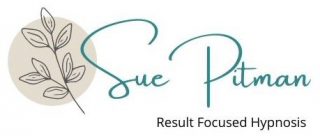Source: telegraph.co.uk
Hypnotherapy is increasingly recognised as a safe and effective way of blocking out pain during operations and helping women in childbirth. Lucie Hoe reports
Fearing pain in operations is understandable. So, would you believe it possible to undergo surgery without a general anaesthetic, and not feel a thing? A report in the New Scientist last week revealed how a patient at the Lister Hospital in London was hypnotised by a specially trained anaesthetist minutes before having breast surgery, and experienced no pain as the surgeon made incisions.
So powerful was her hypnotic trance that 46-year-old Pippa Plaisted claims: “The plastic surgeon was cutting and sewing inside me, but I couldn’t feel any sensation at all.”
After the procedure, which was carried out seven years ago, Plaisted said she suffered “no nausea or wooziness” and had “a clear head”. Her case is unusual, but not unique. Hypnotherapy is gaining credence within the medical profession as a safe and helpful practice in a wide range of situations, from weight loss to pain relief and quitting smoking.
In Belgium, where much of the research has been done, doctors routinely use hypnotherapy combined with small amounts of analgaesics as an alternative to a general anaesthetic. About 5,000 procedures have been carried out on hypnotised patients at Liege Hospital, where researchers have found benefits included less bleeding and making operations easier to perform. When an incision is made into the body, blood vessels naturally constrict to prevent copious bleeding, a reaction that is inhibited by anaesthetic drugs.
In Britain, surgery under hypnosis is rare, but Tom Connelly, secretary of the British Society of Clinical Hypnosis, says that a growing number of women are turning to the practice to help cope with the pain of labour.
There is evidence that “hypnobirthing” works. At the University of Florida, Professor Paul Schaubel and his colleagues showed how women who learnt self-hypnosis before giving birth needed less medication, had fewer complications and were more likely to deliver healthier babies. They also suffered less stress and anxiety in the weeks before birth.
Typically, hypnotherapists use visual imagery to help someone enter a hypnotic state.
Clients are often asked to close their eyes and think of somewhere they feel safe and secure, such as a beach on holiday. Gradually slowing down his voice, the hypnotist asks them to report what they see, smell and hear as they slip into a hypnotic state, usually within several minutes.
Although there are four stages of hypnotic trance (hypnoid, light, medium and deep), only a light state is required for most health procedures, although a deep trance (which takes longer to induce) may be needed to block out extreme pain.
In January, researchers at Stanford University Medical School showed how hypnosis helped children cope with painful health examinations.
In a study of 45 children facing voiding cystourethography (VCUG), which checks to see if urine is backing into the kidneys, Professor David Speigel, a psychiatrist at Stanford, saw “less crying and less distress” in children who were hypnotised. “Technicians said the procedure was easier to perform on those with hypnosis,” Spiegel says. “And the duration of the operation was cut from 50 minutes to 35 minutes.”
Until recently, neuroscientists were puzzled about how hypnotherapy works. Now they are beginning to understand why. Last year, researchers at the University of Iowa used magnetic resonance imaging scans to find out if hypnosis alters brain activity in a way that might explain pain reduction.
Their results, reported in the journal Regional Anaesthesia and Pain Medicine, showed patients
under hypnosis experienced significantly less pain when exposed to strong heat and had a distinctly different pattern of brain activity when not hypnotised. Researchers concluded that hypnosis somehow blocks signals from reaching parts of the brain that perceive pain.
British Society of Clinical Hypnosis: www.bsch.org.uk
Original Link: http://www.telegraph.co.uk/global/main.jhtml?xml=/global/2005/08/30/hhyp30.xml



